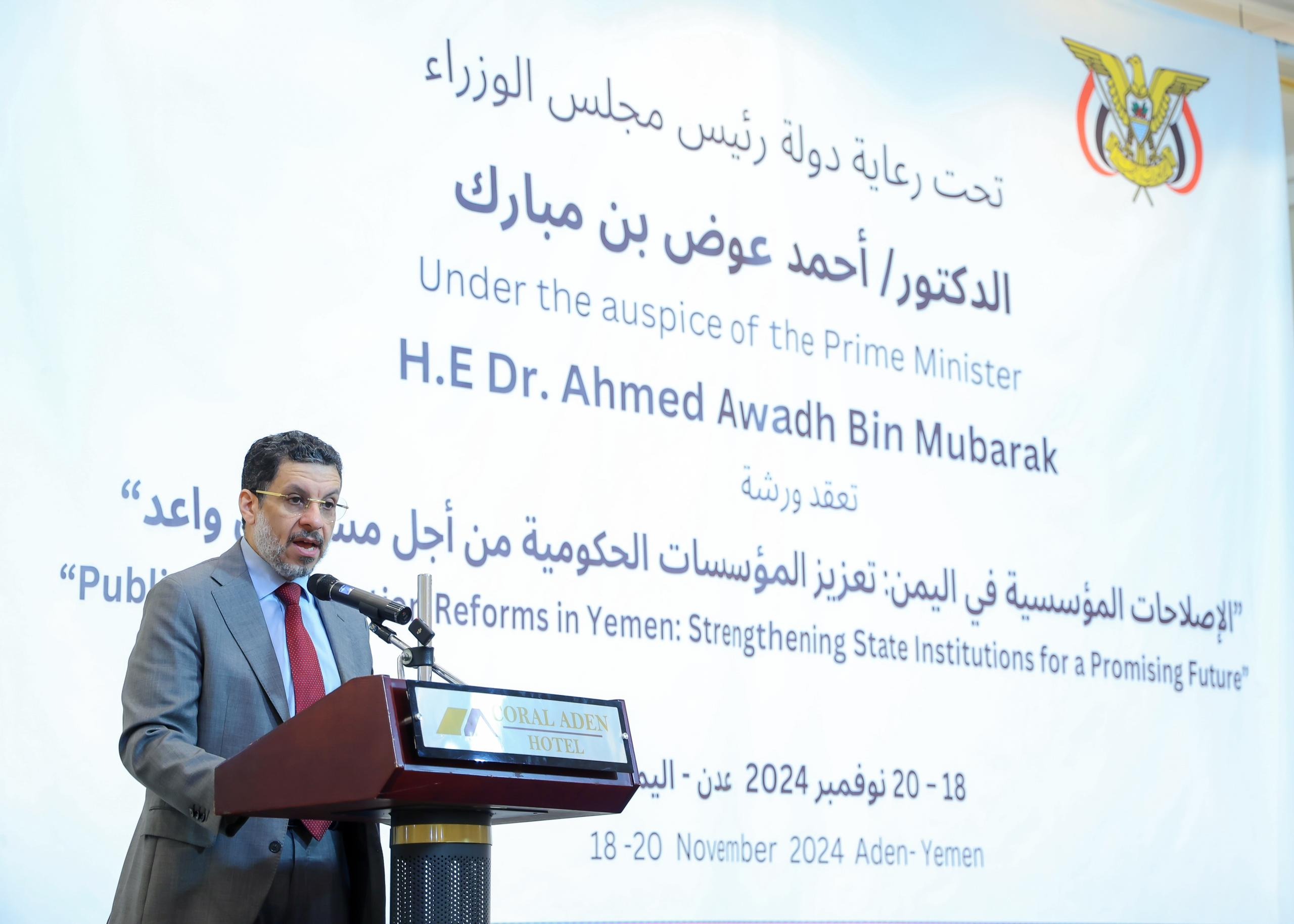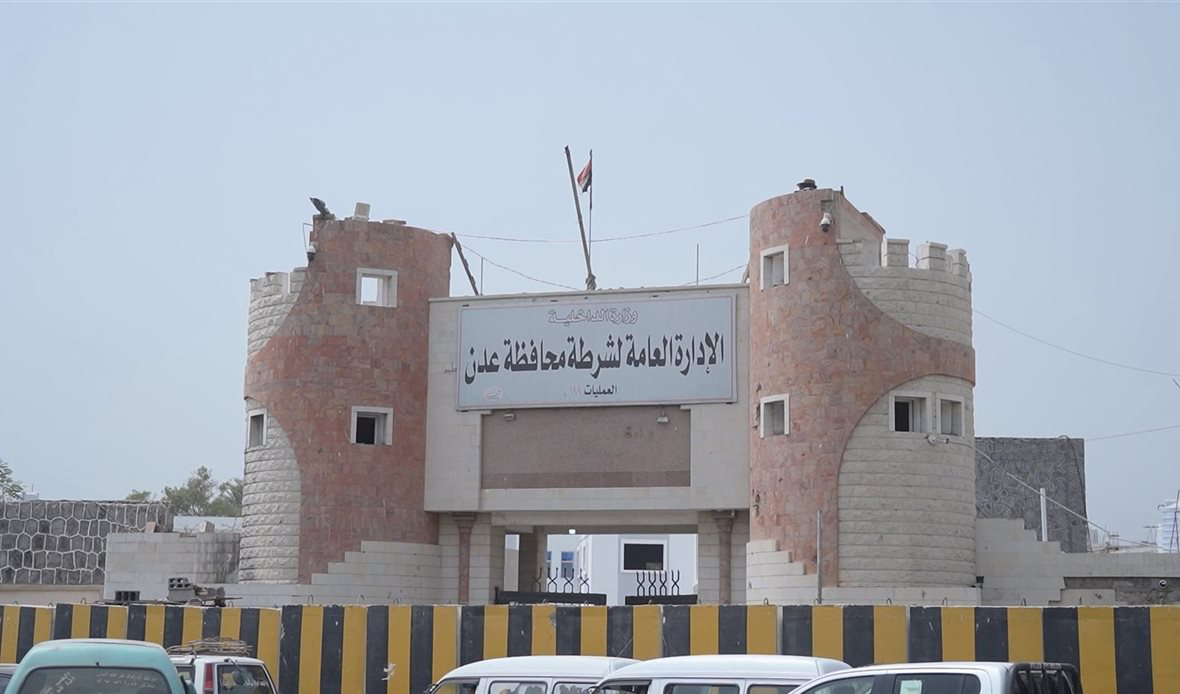
Barran Press
On Monday, November 18, 2024, Yemeni Prime Minister Dr. Ahmed Awad bin Mubarak announced the launch of a comprehensive reform plan for state institutions, consisting of five key pillars. The announcement was made during the opening of the National Workshop on Institutional Reforms in Yemen, titled "Strengthening State Institutions for a Promising Future," held in Aden, the temporary capital of Yemen.
The workshop, organized by the Prime Minister's Office in coordination with the Ministry of Civil Service and Insurance, will run for three days, according to the official Yemeni News Agency Saba.
The five pillars of the reform plan, as outlined by bin Mubarak, include "restructuring institutions, reforming wages and salaries, reforming employment policies, capacity building, and digital transformation."
Bin Mubarak emphasized that these reforms are not merely aspirational goals but essential steps to ensure the sustainability of institutions and fulfill the aspirations of the Yemeni people in building a strong, cohesive, and just state.
Regarding institutional restructuring, he noted that many institutions operate with outdated structures that do not align with their assigned tasks. He directed the restructuring of the Prime Minister's Office and the General Secretariat of the Cabinet.
"In wage and salary reform, we aim to develop a new system that promotes fairness and equity, ensuring financial and psychological stability for employees. Employment policy reform will adopt a competitive and transparent system to select qualified and competent personnel, enhancing institutional performance efficiency," bin Mubarak said.
On capacity building, he stated that the government aims to develop training programs to enhance human resource efficiency and capabilities to meet current and future challenges, leveraging international expertise and on-the-job training.
Regarding digital transformation, bin Mubarak stressed that it is not an option but a necessity to achieve institutional efficiency and improve the quality of services provided to citizens.
He highlighted that this workshop is the first of its kind organized by the Yemeni government since the Houthi coup, aiming to "direct donor and international organization activities towards vital sectors that will make a tangible difference in Yemen."
"We are not starting from scratch but building on previous efforts and the government's commitments in financial and administrative reform, especially its commitments to the Arab Monetary Fund," he said.
The workshop is part of the implementation of the five main tracks that constitute the government's priorities, aiming to correct many distortions and transform current institutions into efficient entities.
Bin Mubarak also addressed the issue of the pension fund, which he described as a major problem facing the government. He emphasized the need to reform the pension system and transform it into a successful investment fund to ensure social protection for retirees and contribute to the country's development.
He noted that a significant percentage of employees eligible for retirement remain in their positions due to difficult living conditions and the inability to cover pension costs, leading to administrative and financial issues that hinder the renewal and rejuvenation of government institutions.
The Prime Minister reiterated the government's commitment to enhancing partnerships with the private sector and adopting policies to strengthen this partnership, benefiting the national economy and serving the interests of the state, society, and the private sector.
Minister of Civil Service and Insurance Dr. Abdul Nasser Al-Wali highlighted the war's repercussions and the ongoing reconstruction efforts, emphasizing the ministry's role in implementing the administrative reform program and seeking support to address existing challenges.
UNDP Resident Representative Zeina Ali Ahmed spoke about the workshop's importance and the UN system's role in supporting recovery and reform programs at all levels, implementing vital projects in Yemen, and transitioning from emergency relief to development.
According to the official agency, the Prime Minister attended part of the workshop's first-day sessions, which focused on assessing the current situation, identifying key challenges, and reviewing the historical context of administrative reforms in Yemen.
Speakers included Taiz Governor and former Minister of Civil Service Nabil Shamsan, World Bank representative Helen Grandov, and Acting Country Director of USAID Ciara O'Carroll.





